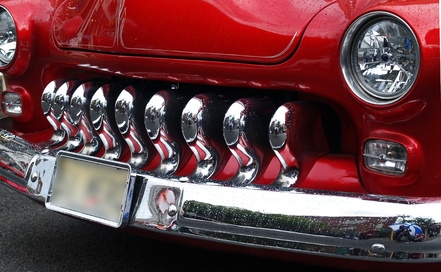
A radiator is a metal pipe under the hood of a car that helps route heat out of the engine through a set of fans. It's an essential car part because it prevents the engine from overheating and routes engine coolant through the system. Some automobile radiators are made of aluminum material instead of steel, brass or copper. An aluminum radiator has a number of advantages over radiators made from steel and other types of metal.
Aluminum is lightweight compared to other types of metal. Because an aluminum radiator is lighter than one made from other metals, it's less expensive to ship, easier to install or replace and reduces the overall weight of the vehicle. The lighter weight can increase the car's fuel efficiency. Because the front end of the car has less weight on it, the car is also faster and easier to steer.
If you have a crack or leak in a standard radiator, you usually have to replace the unit. But a technician can weld cracks in an aluminum radiator and get it back in operable condition. The cost of repairing an aluminum radiator is significantly less than buying a new one because all you have to pay for is the labor.
Aluminum radiators are very durable and resistant to cracking or bending, even at very hot temperatures. They last longer than standard radiators and are more resilient in an accident involving the front end of the car.
Aluminum is a recyclable metal, so it's beneficial for the environment. When it's time to replace the aluminum radiator, it can be disposed of at a recycling center. The material will be melted down and used again to make another radiator or other aluminum part. You may have to pay to dispose of a standard radiator made of steel, copper, brass or other heavy material.